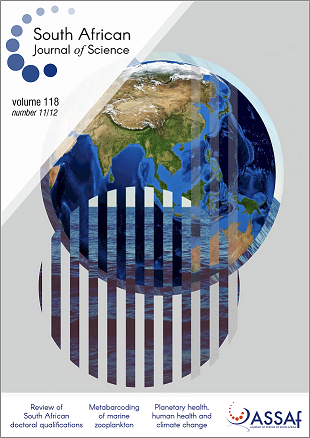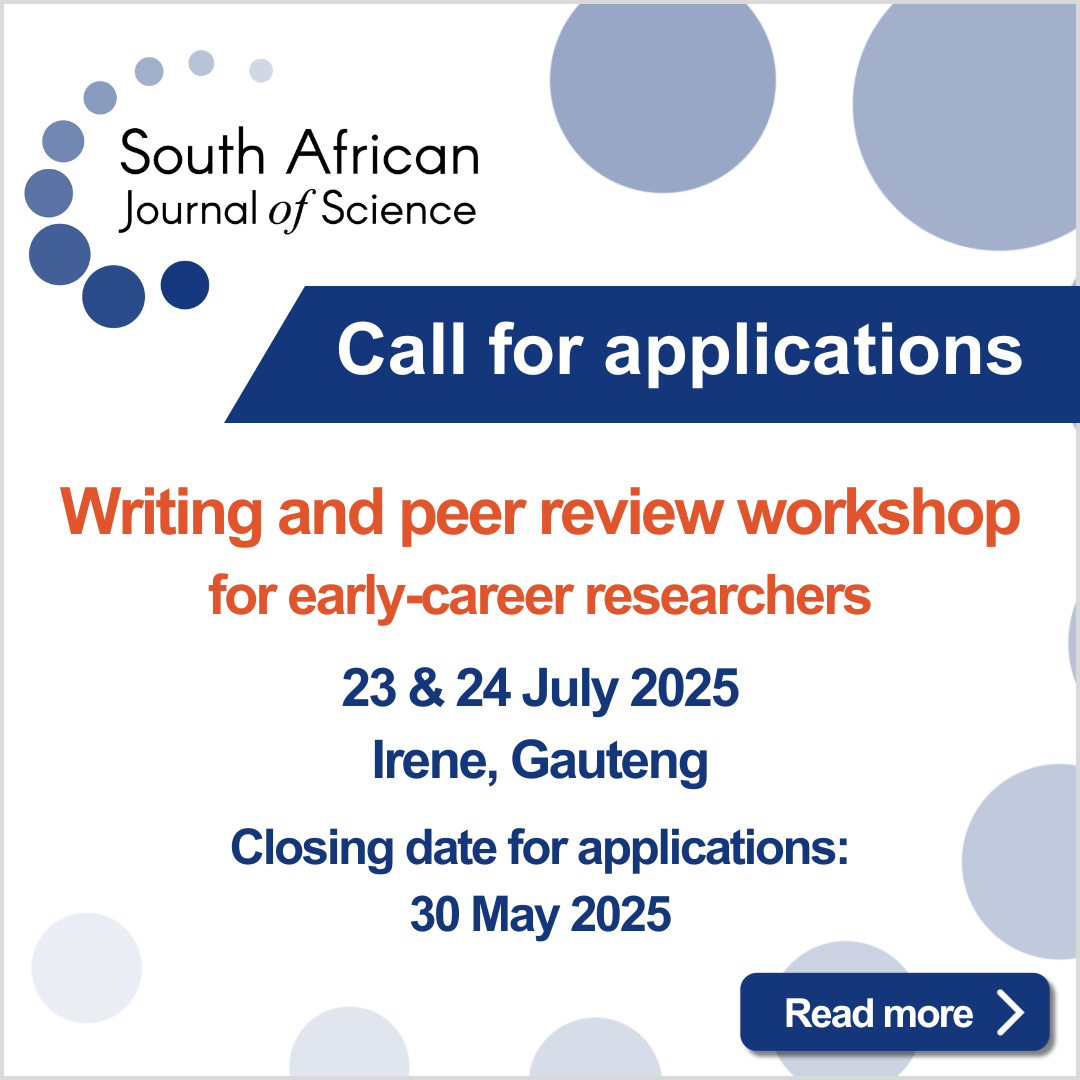COVID-19, global health and climate change: Causes and convergences
DOI:
https://doi.org/10.17159/sajs.2022/13165Keywords:
global health, COVID-19, climate change, multiple instabilitiesAbstract
Despite massive global economic growth and advances in science and medicine with spectacular aggregate and individual improvements in health and life expectancy over the past century, the world has now become severely unstable in multiple domains – biological, sociological, political, ecological, economic, and health care. These pervasive instabilities are organically interactive within a complex world system that has reached crisis status at local, global, and planetary levels. Lying at the heart of this complex crisis are long-neglected disparities in health and well-being within and between countries, the refusal to face how these and climate change have arisen, and how economic considerations have fuelled the trend towards entropy (gradual decline of the planet into disorder). The critical point we have reached, starkly highlighted by the emergence of the COVID-19 pandemic pari passu with ongoing climate change and planetary degradation, reminds us of our global interconnectedness with each other and with nature. Comprehending and acknowledging the myriad, humanly constructed forces in each of these domains influencing all aspects of life, are the first steps towards effectively facing challenges to our health, our humanity (collectivity as humans) and our planet. Overcoming denial, acknowledging the magnitude and complexity of these challenges, prescient vision and dedicated action capable of fostering the cooperation for overcoming obstacles are now vital to seeking peaceful pathways towards more equitable and sustainable lives. South Africa is a microcosm of the world, with its local threats and challenges mirroring the global.
Significance:
Instabilities that pervade the world, highlighted by the COVID-19 pandemic, are especially significant for South Africa, where they manifest most starkly because of its apartheid legacy, its relative success economically on the African continent, and the implications of ongoing widening disparities and antagonism amongst South Africa’s diverse people. Belief in moving towards narrowing wide disparities through decolonisation and reversion to an ‘idyllic African heritage’ via a transformation that includes widespread corruption, and the ANC government’s perverse erosion of lives today and in the future through ‘state capture’, intensifies rather than ameliorates our predicament in an era when cooperation and a clear vision of current threats and future possibilities are desperately needed.
In an accompanying article, potential pathways towards a better future are offered through suggested shifts in paradigms of thought and action.
Published
Issue
Section
License

All articles are published under a Creative Commons Attribution 4.0 International Licence
Copyright is retained by the authors. Readers are welcome to reproduce, share and adapt the content without permission provided the source is attributed.
Disclaimer: The publisher and editors accept no responsibility for statements made by the authors
How to Cite
- Abstract 943
- PDF 642
- EPUB 226
- XML 273













.png)